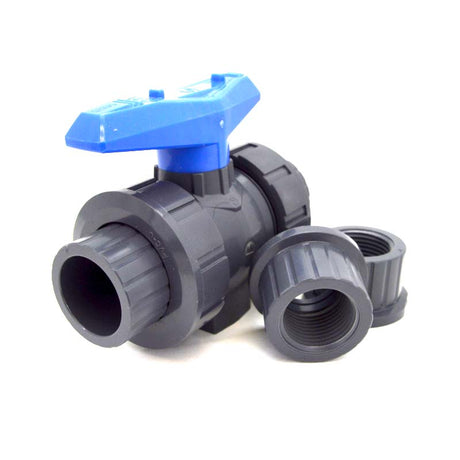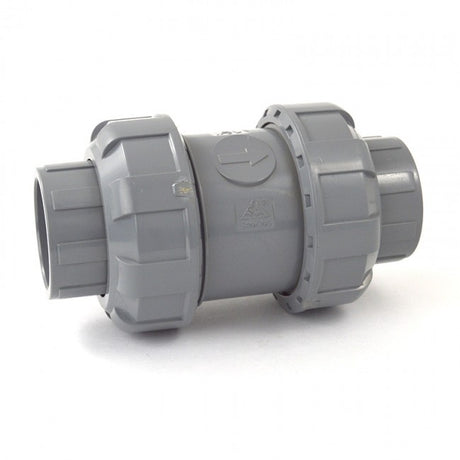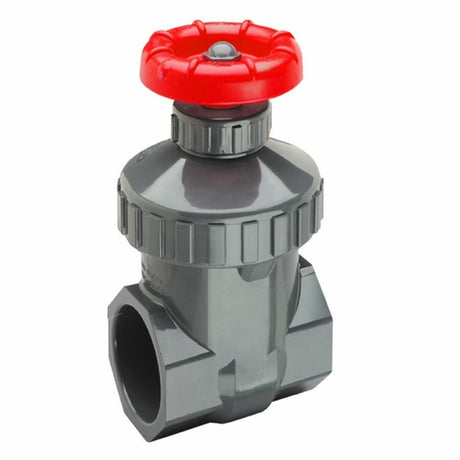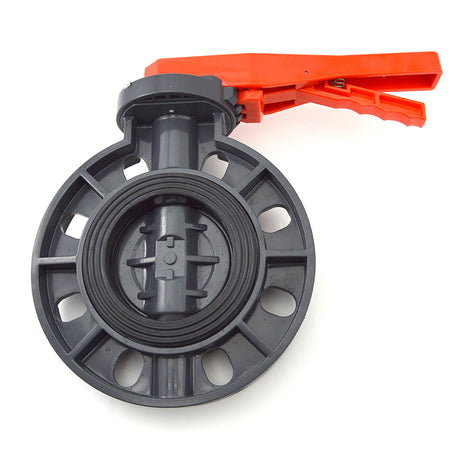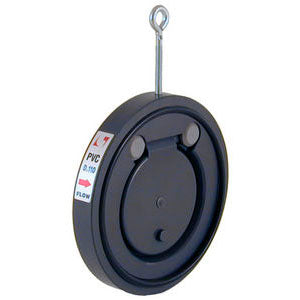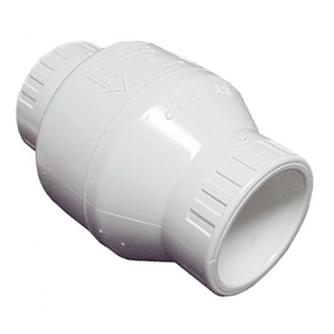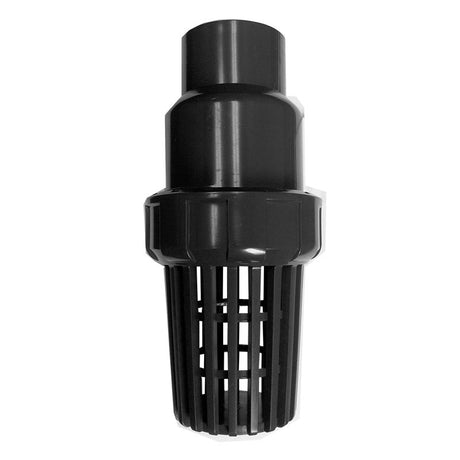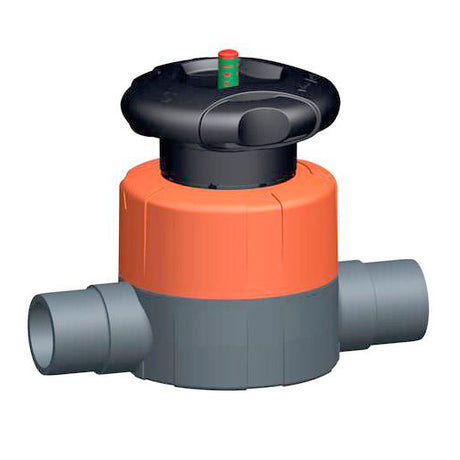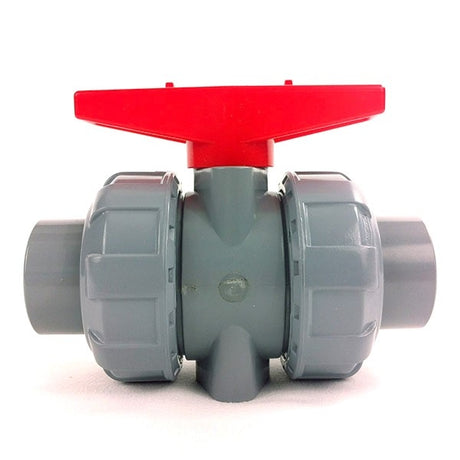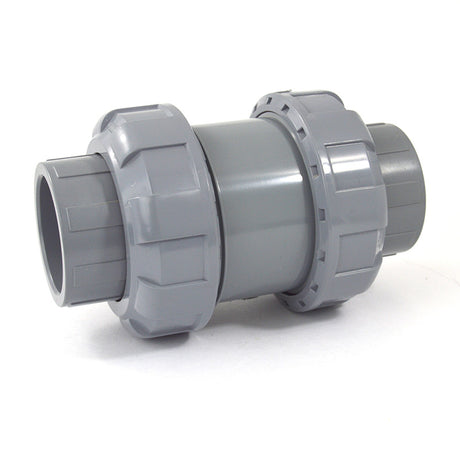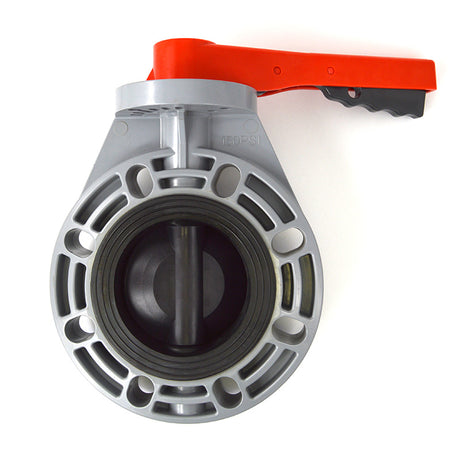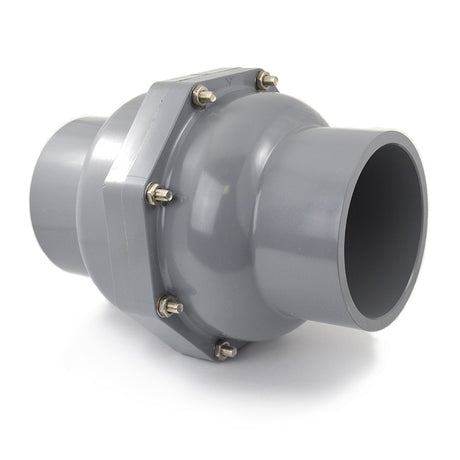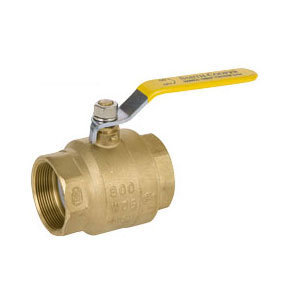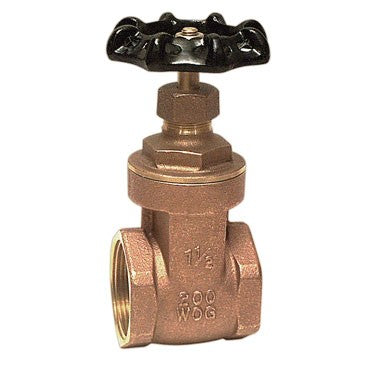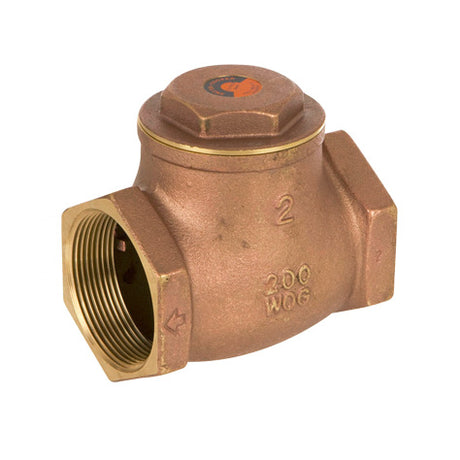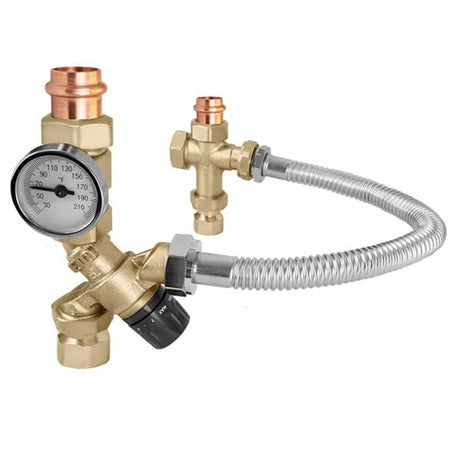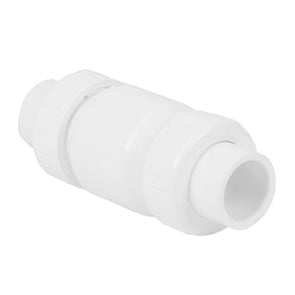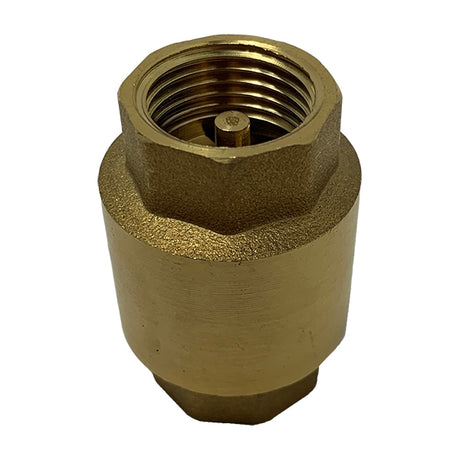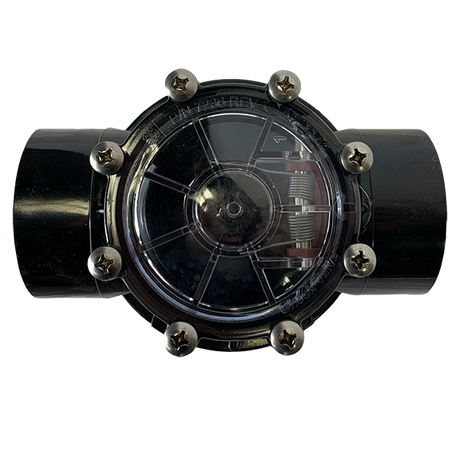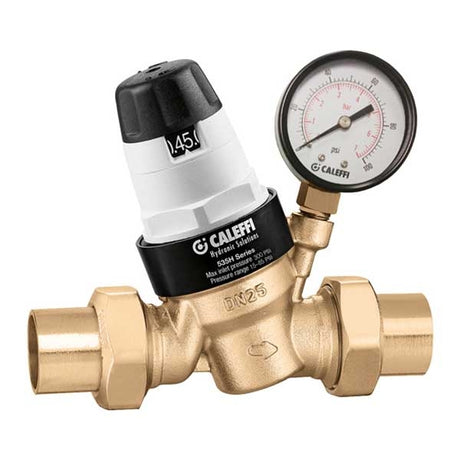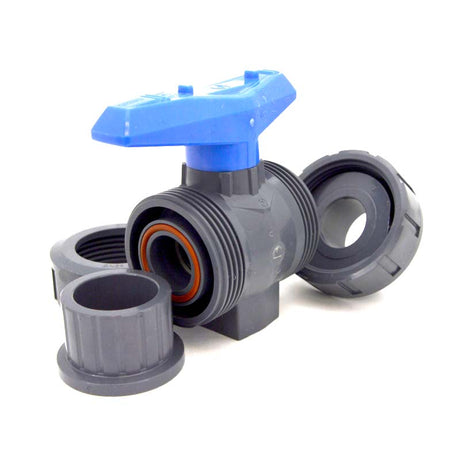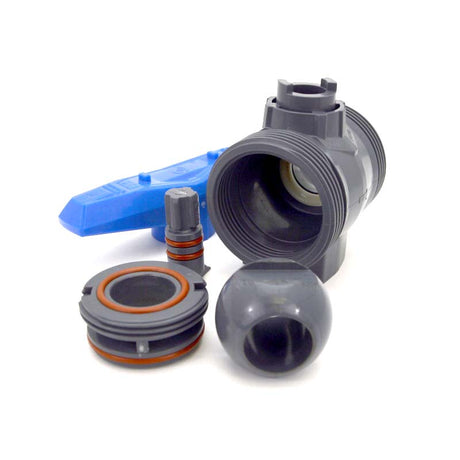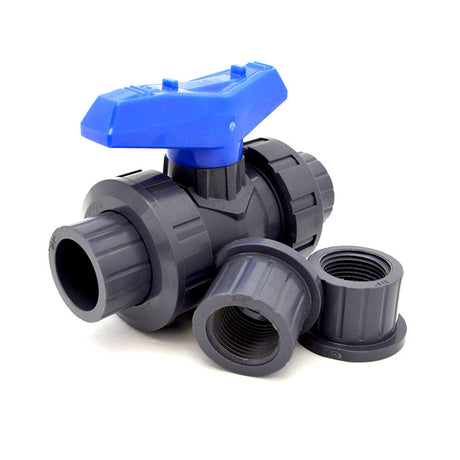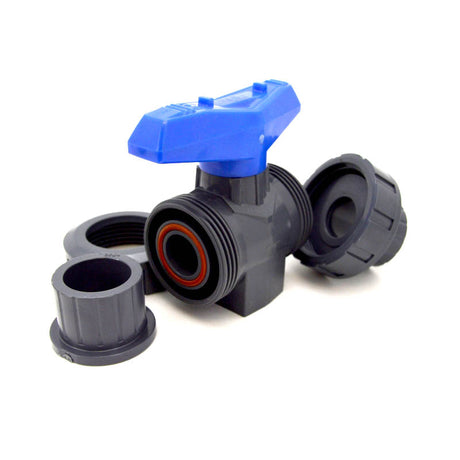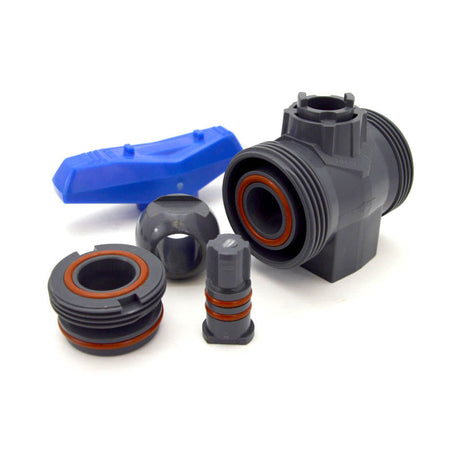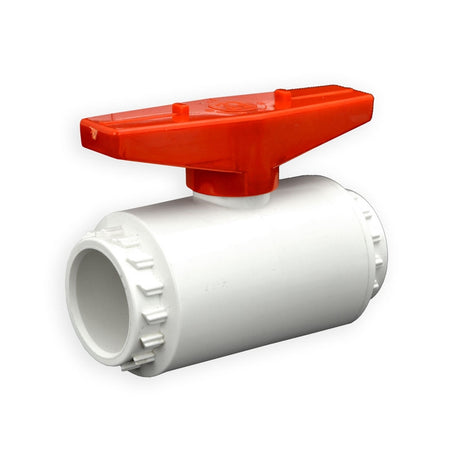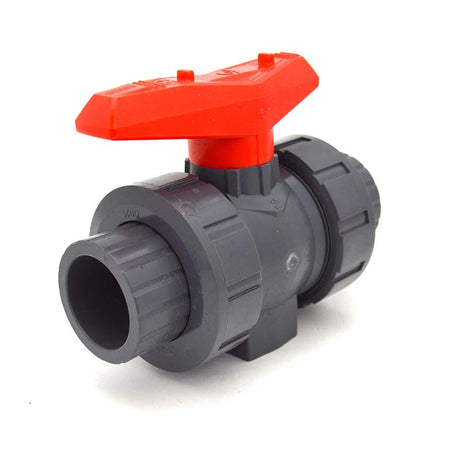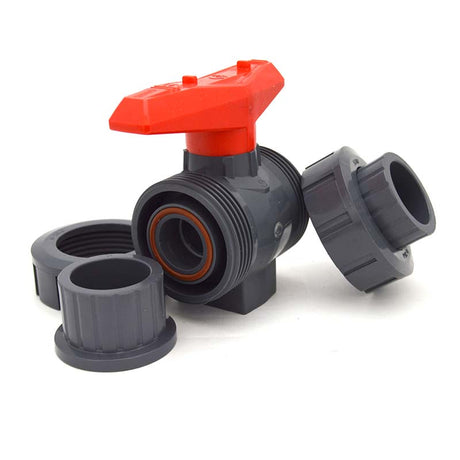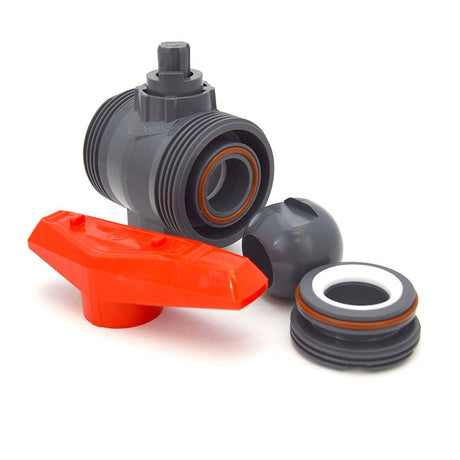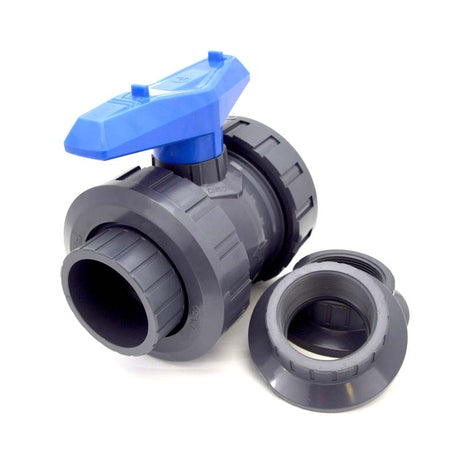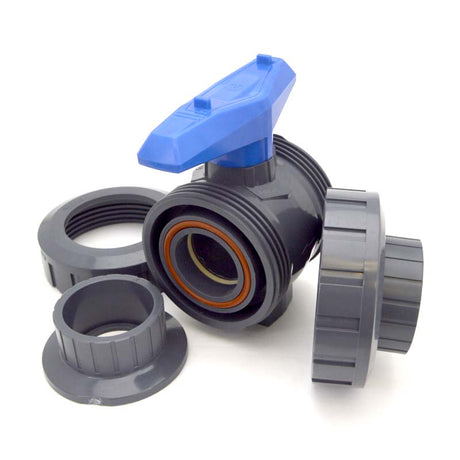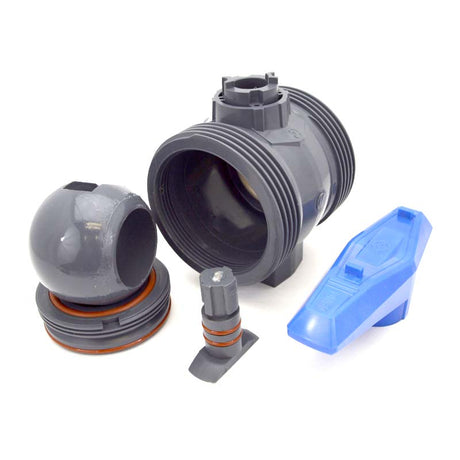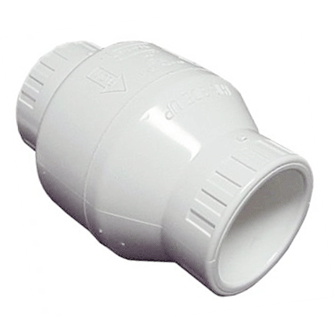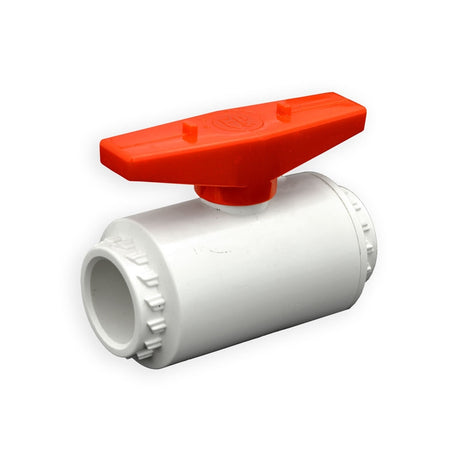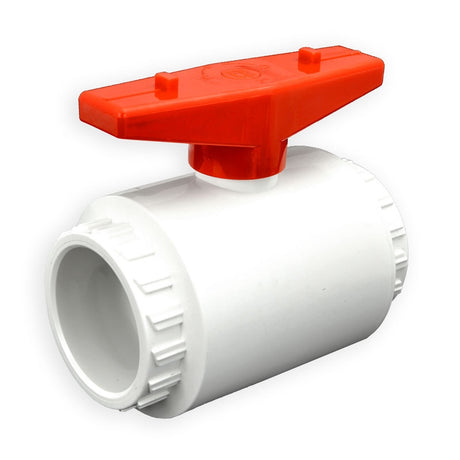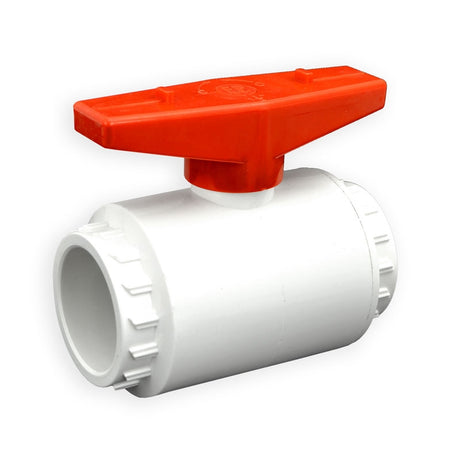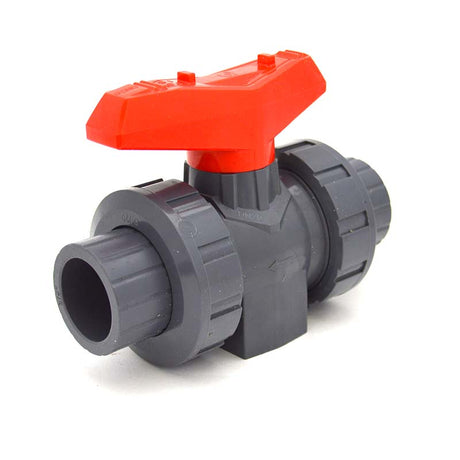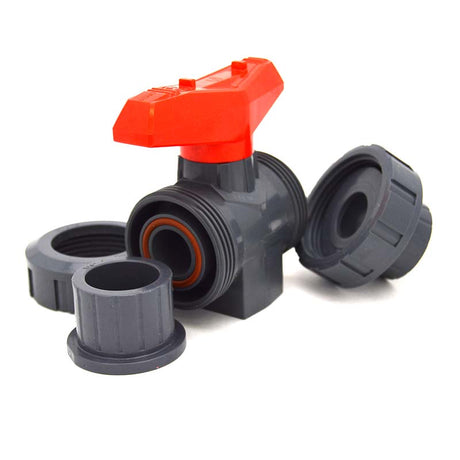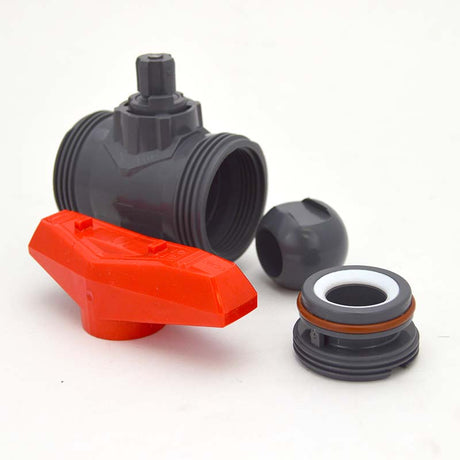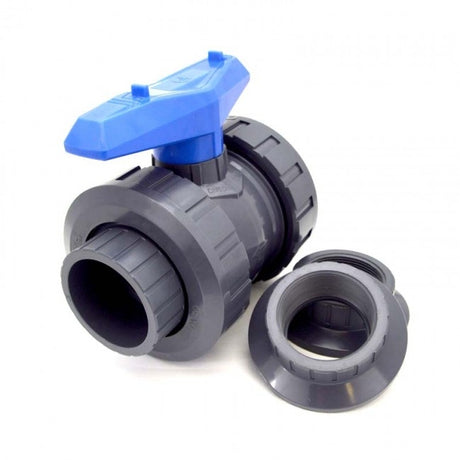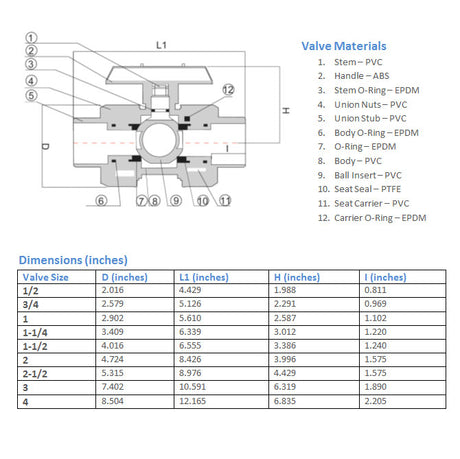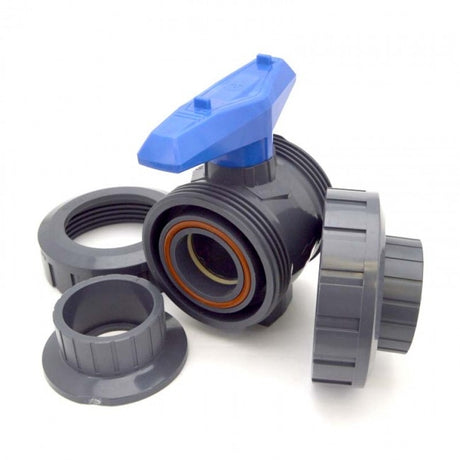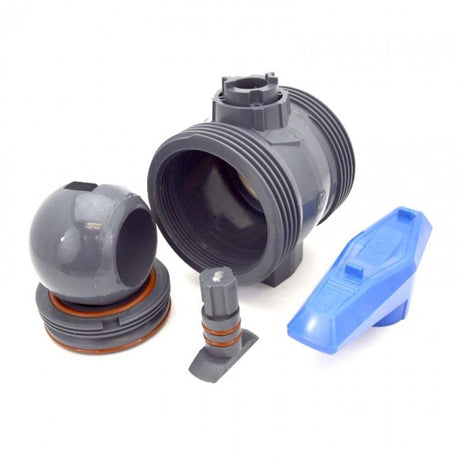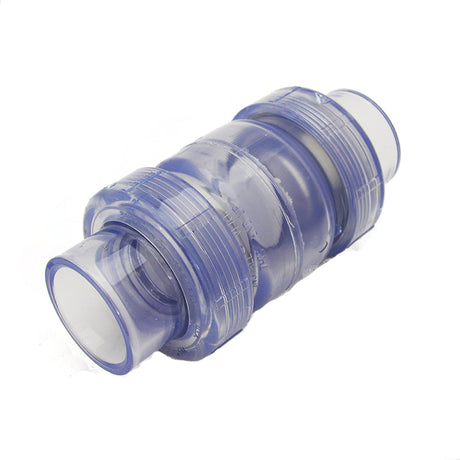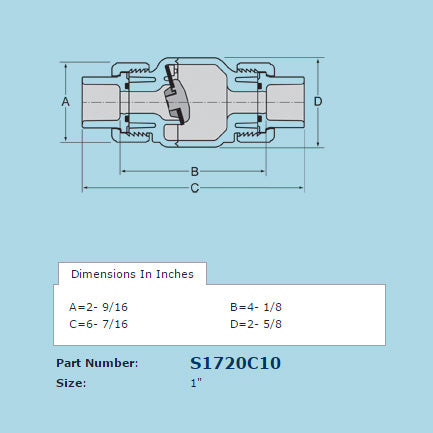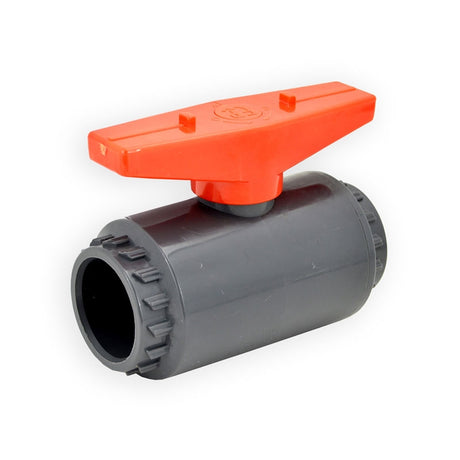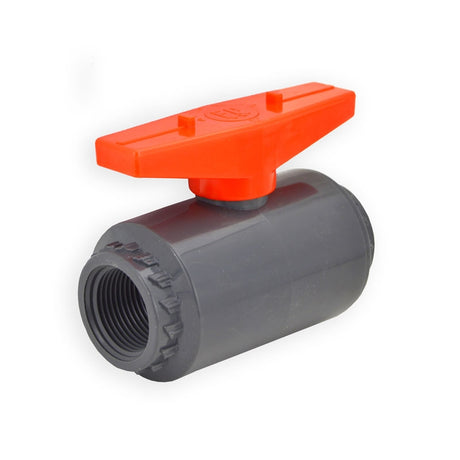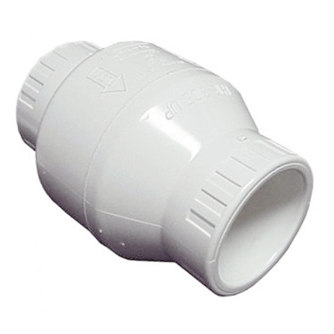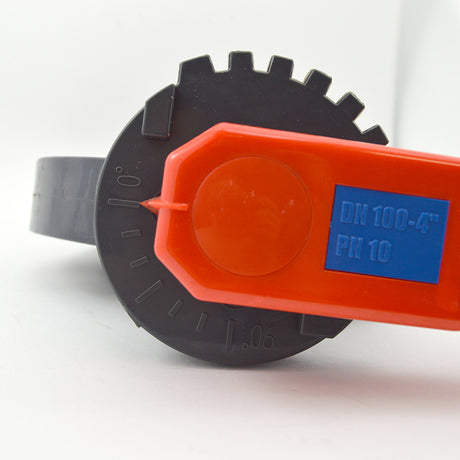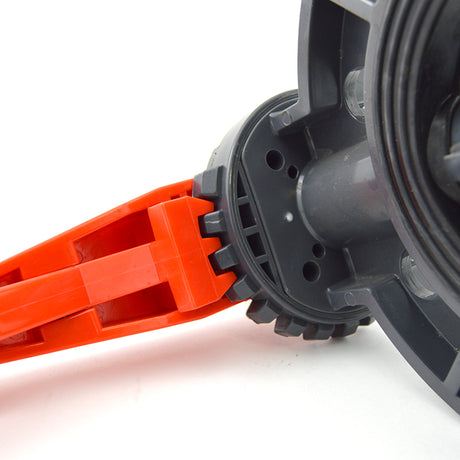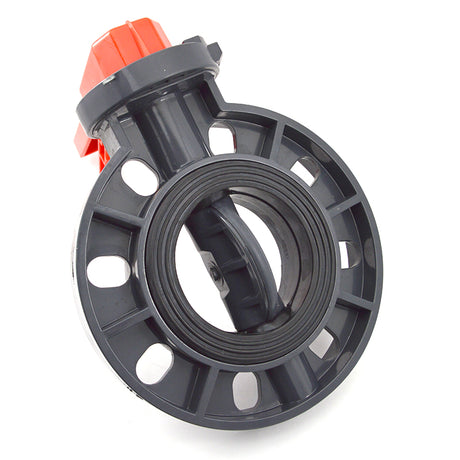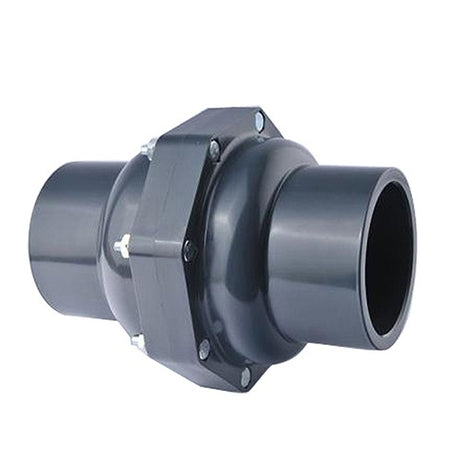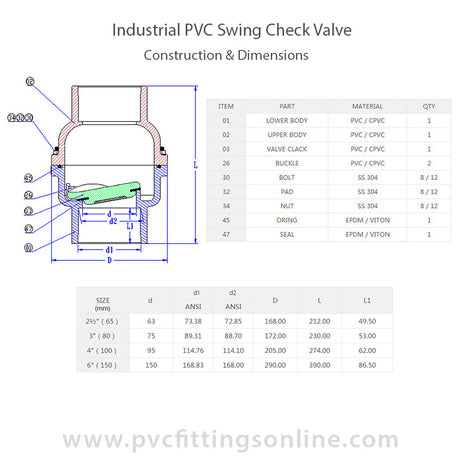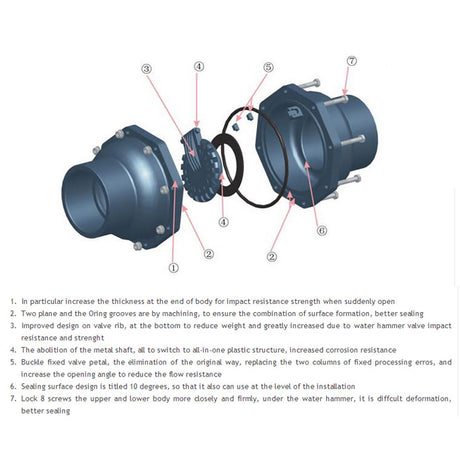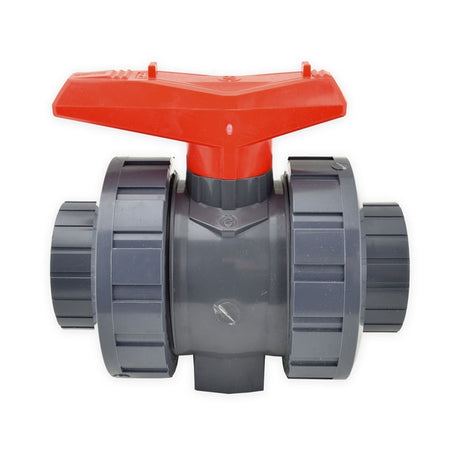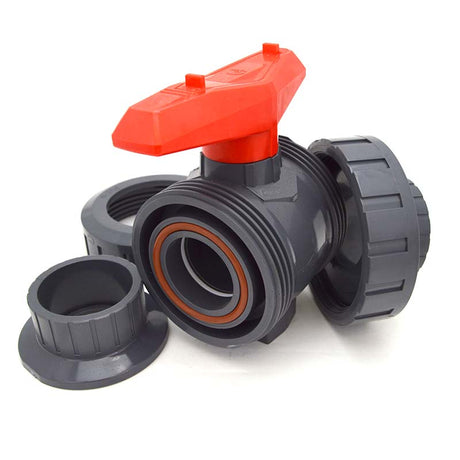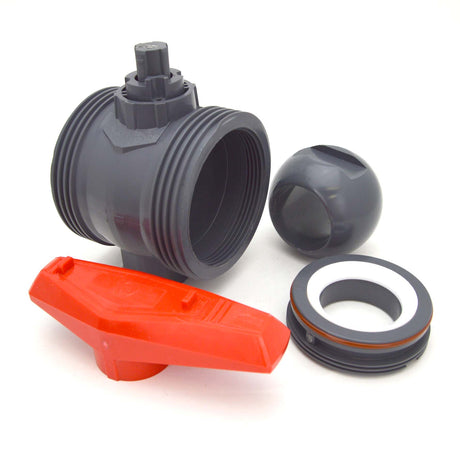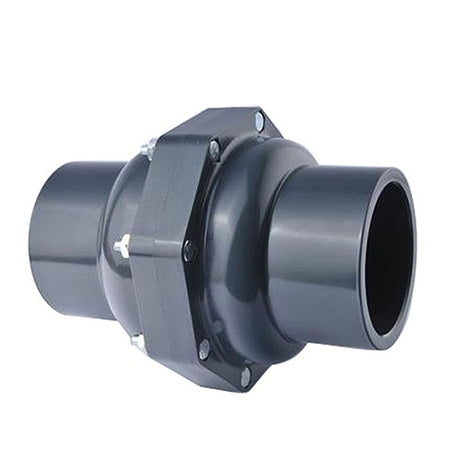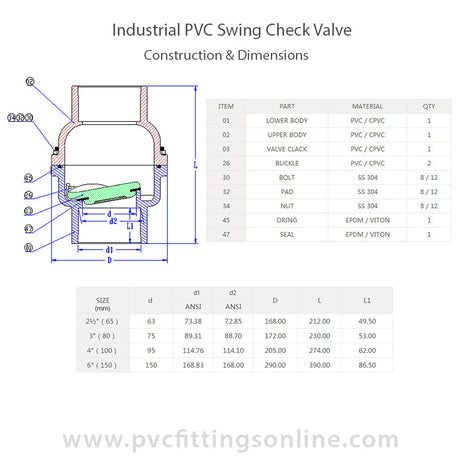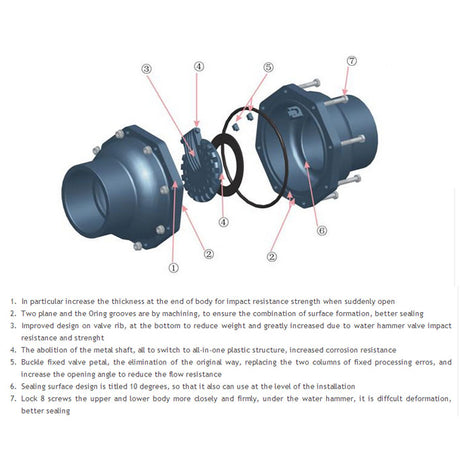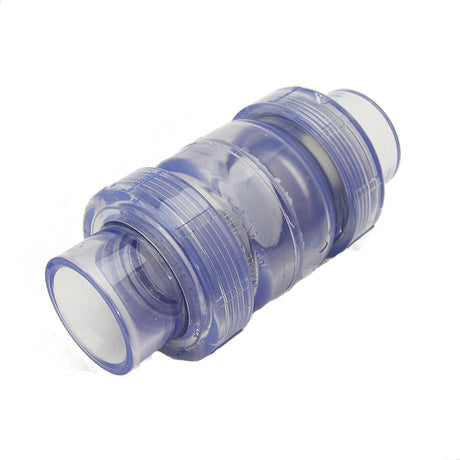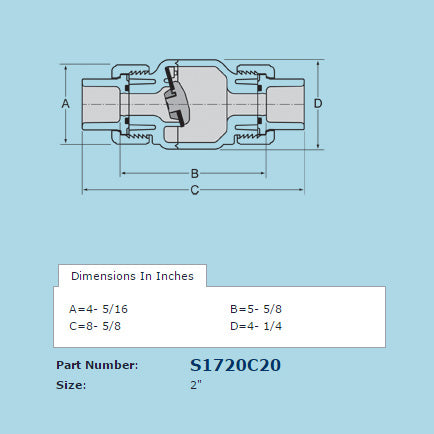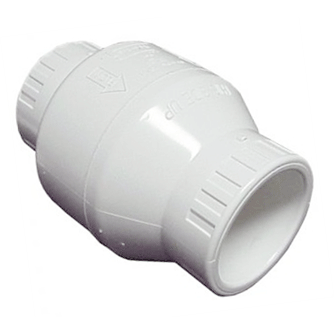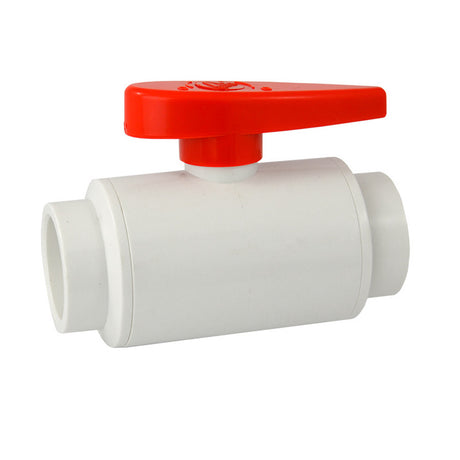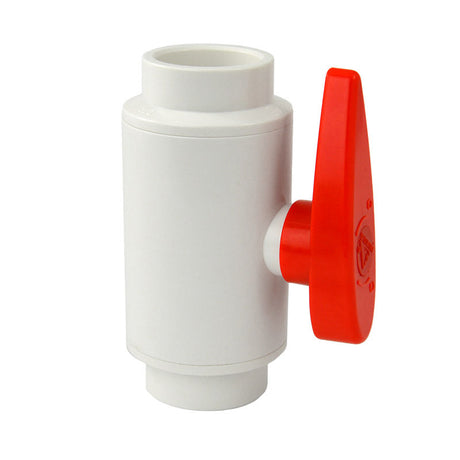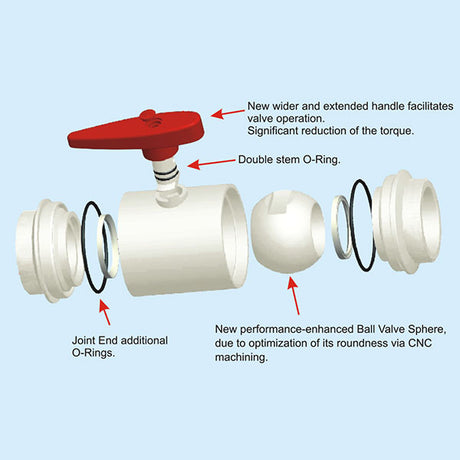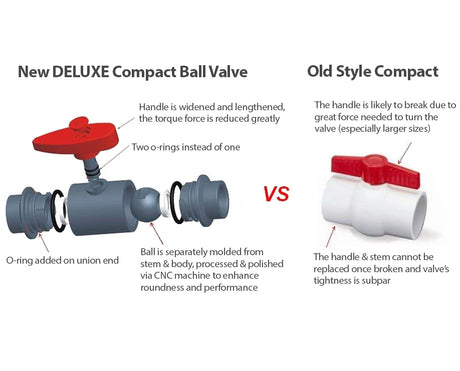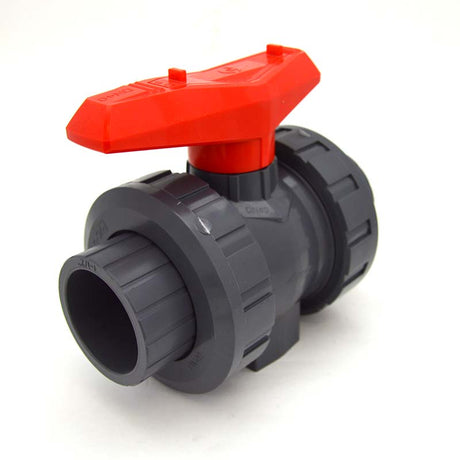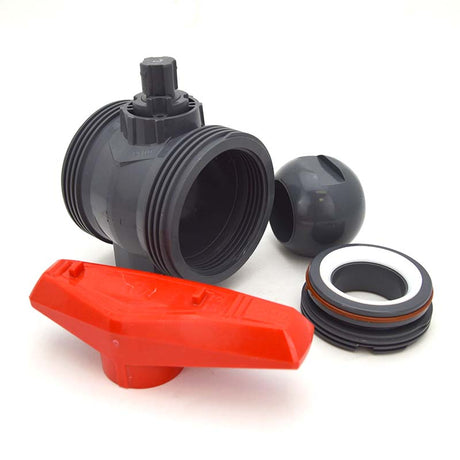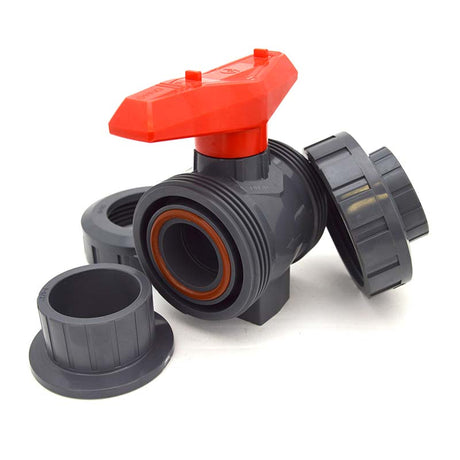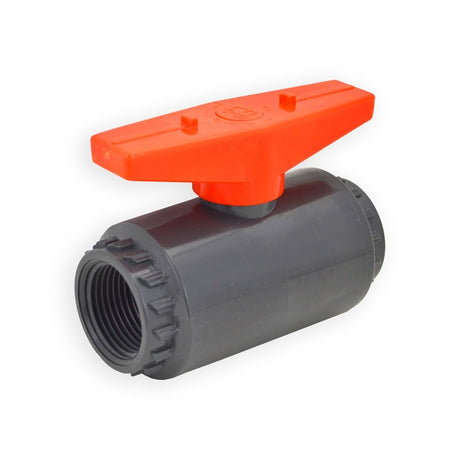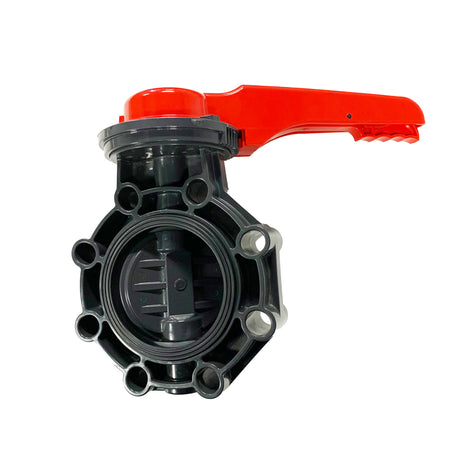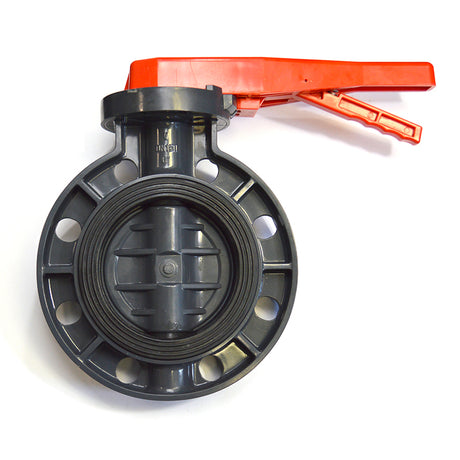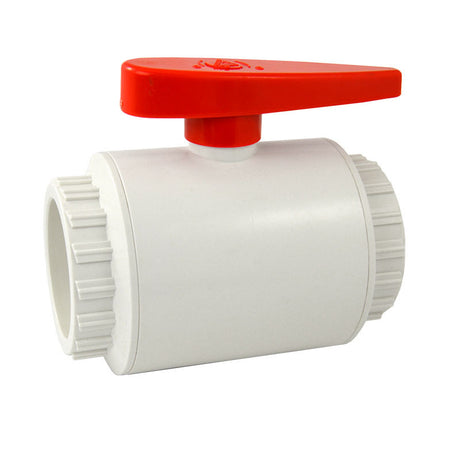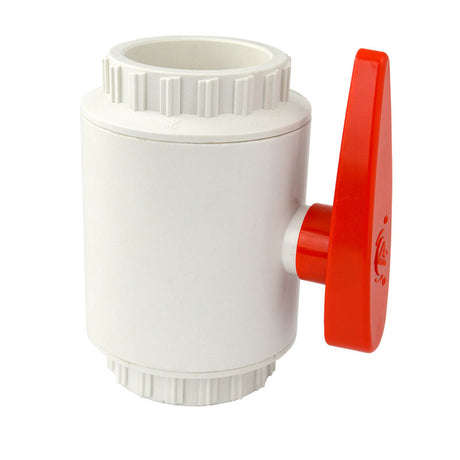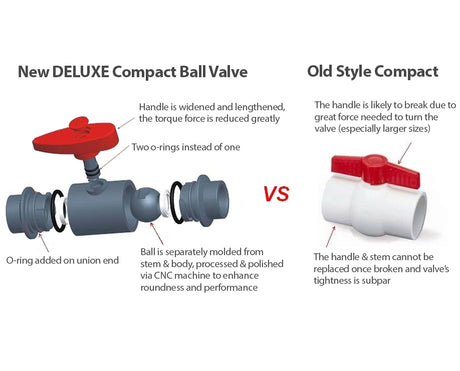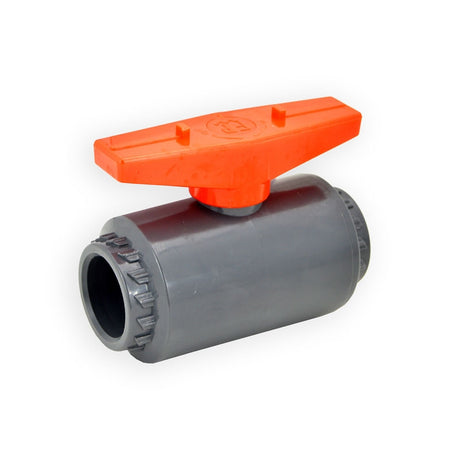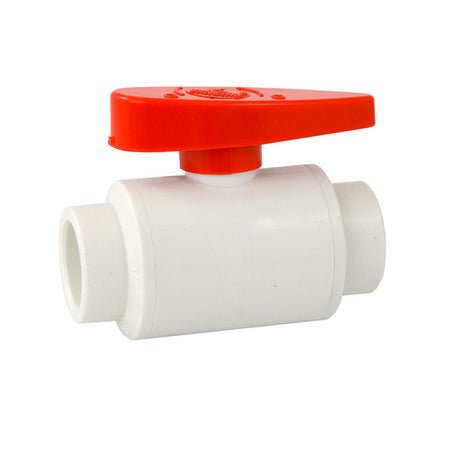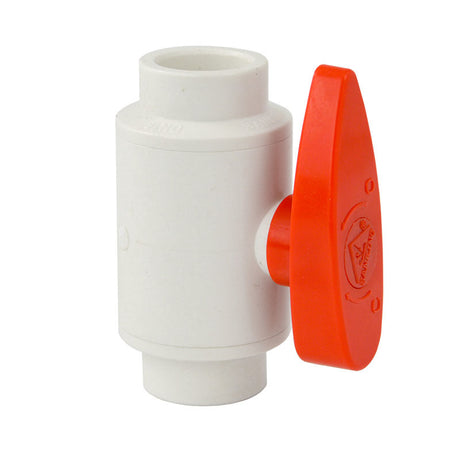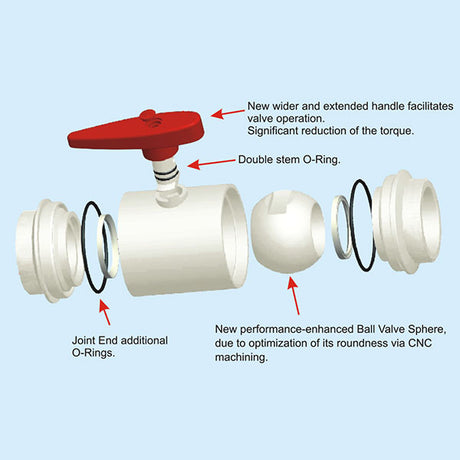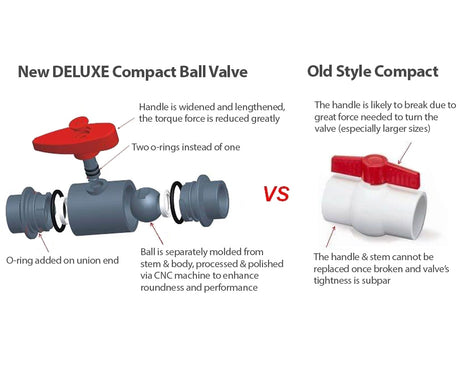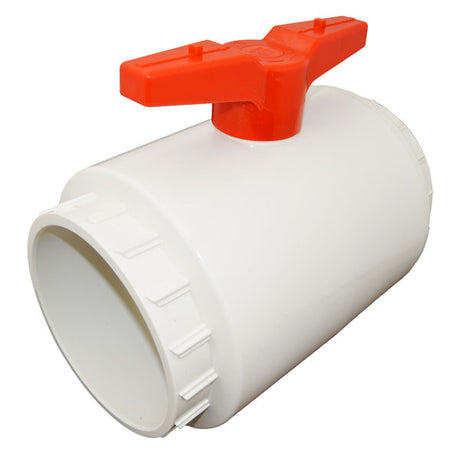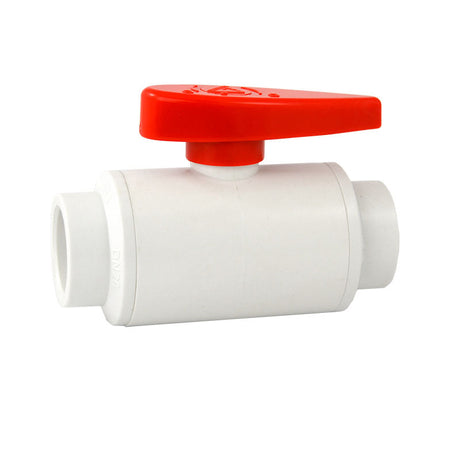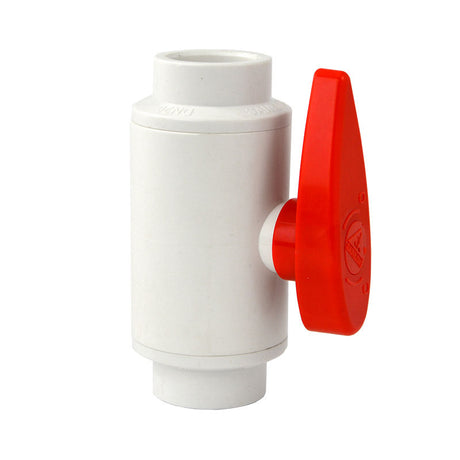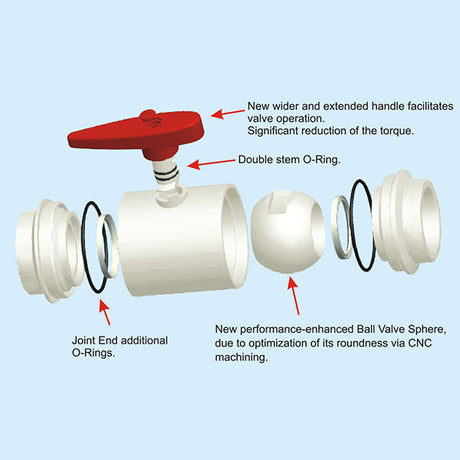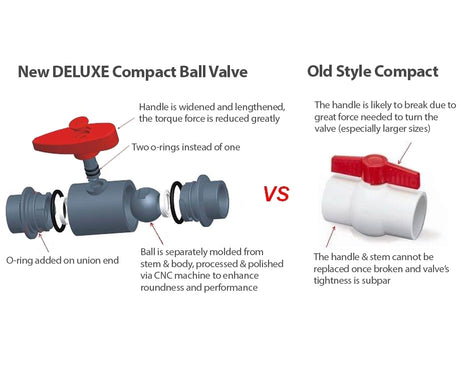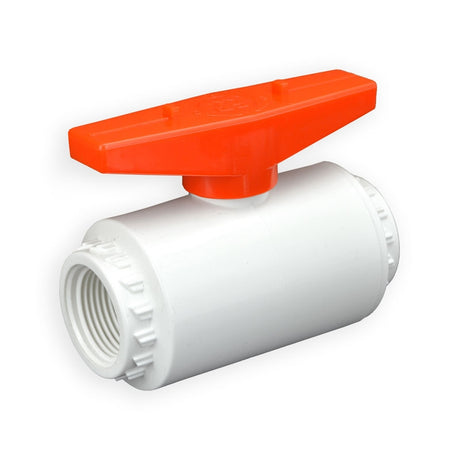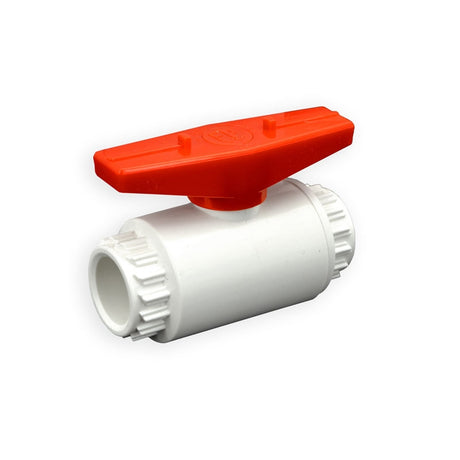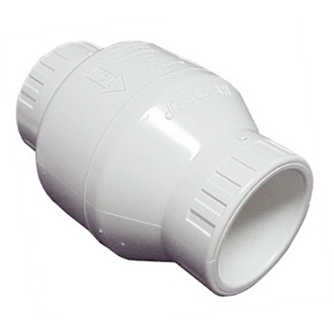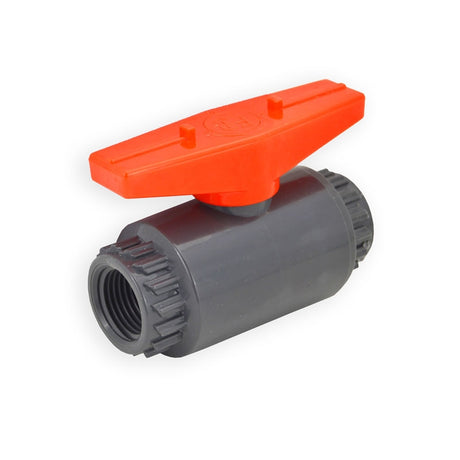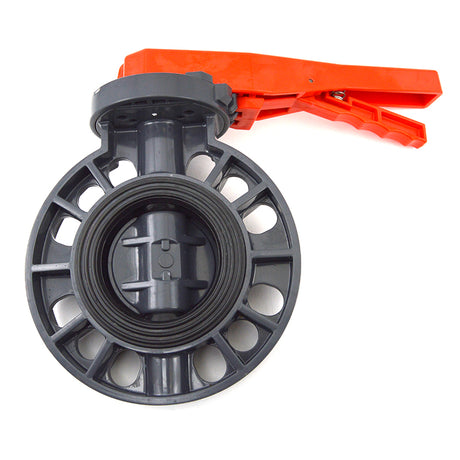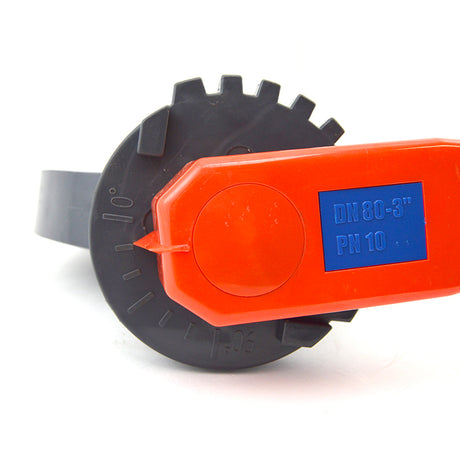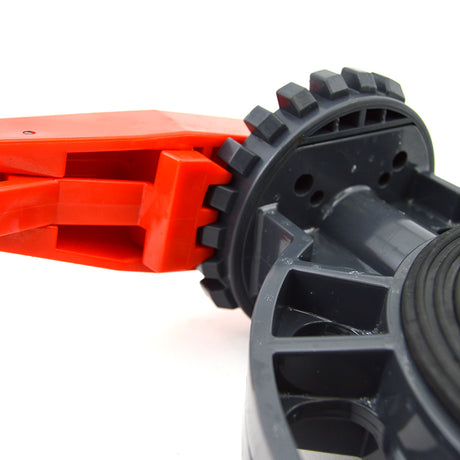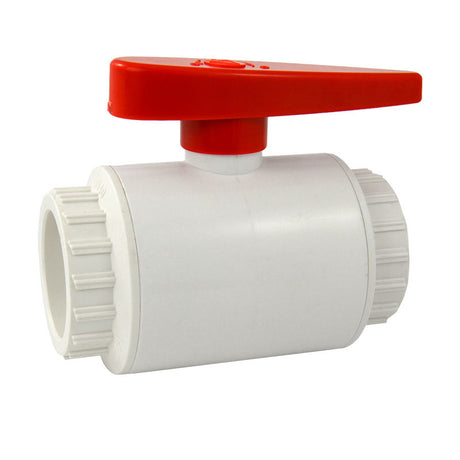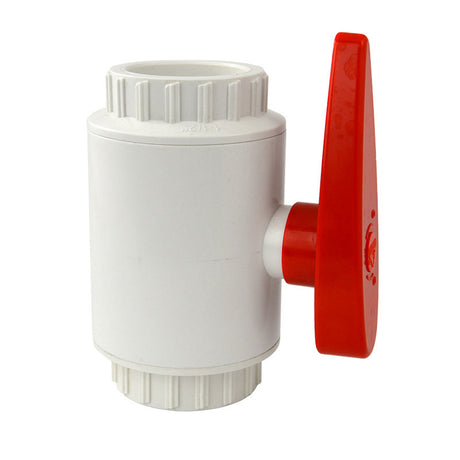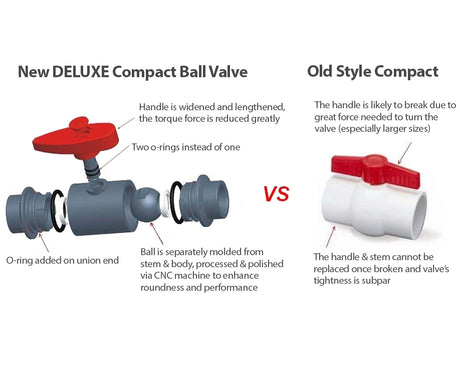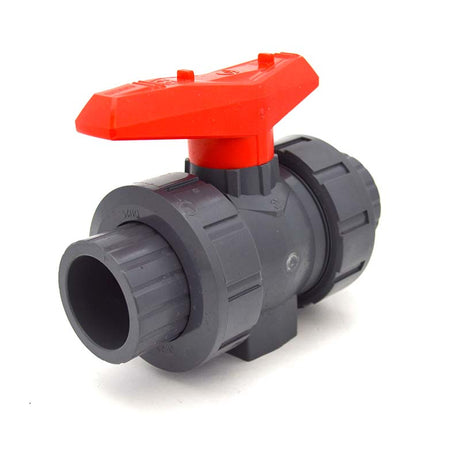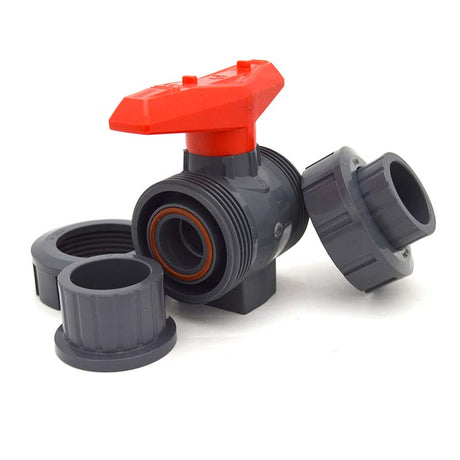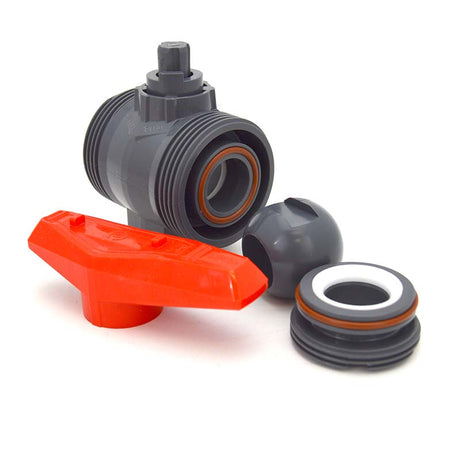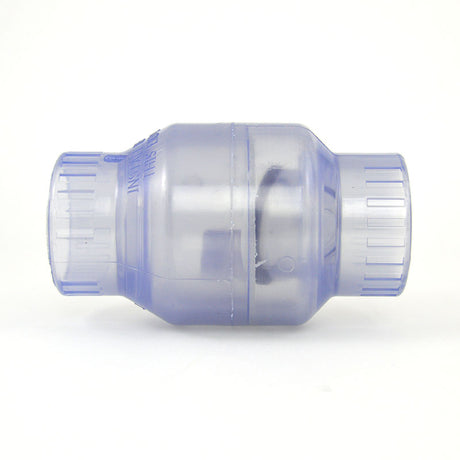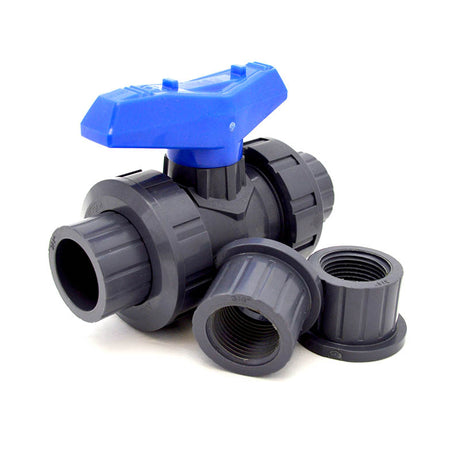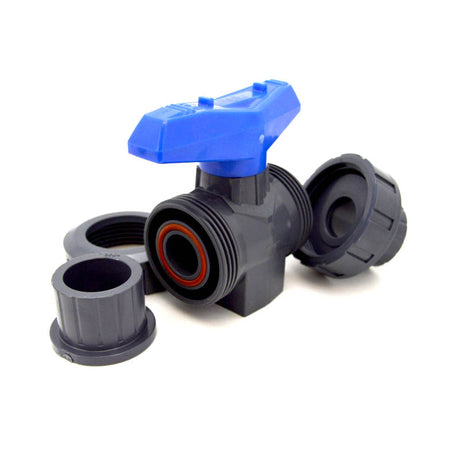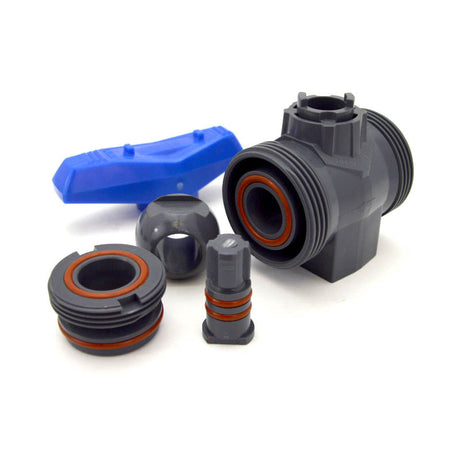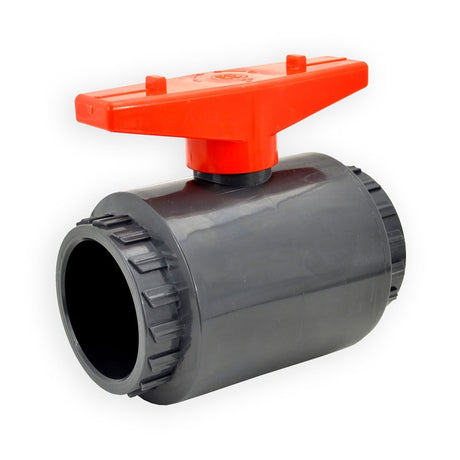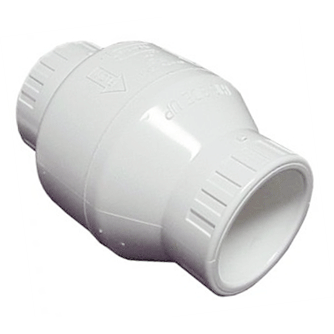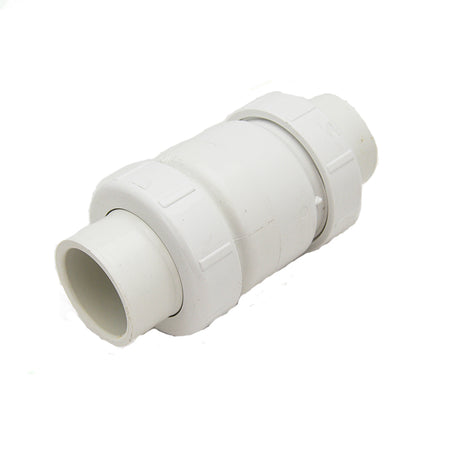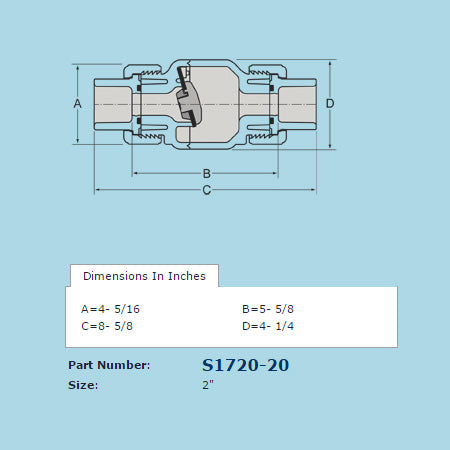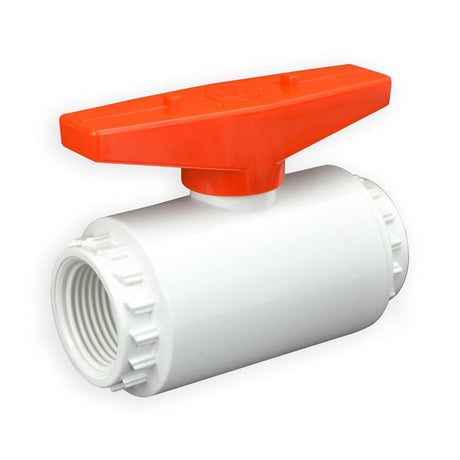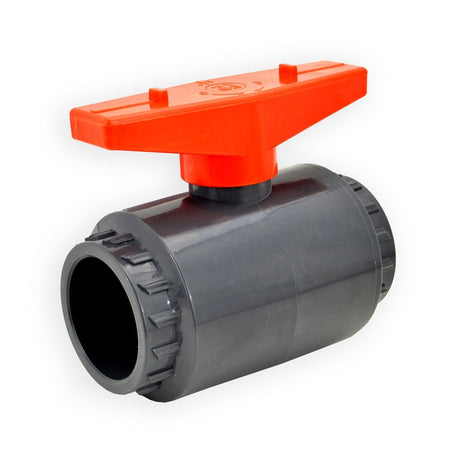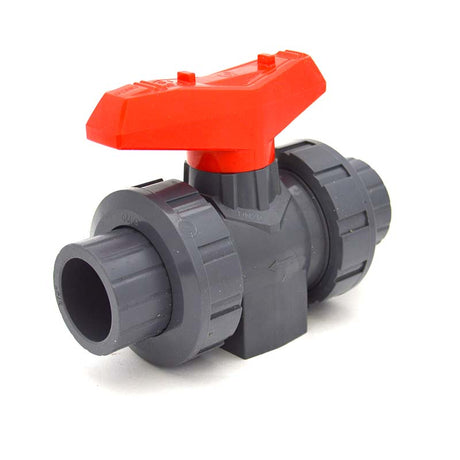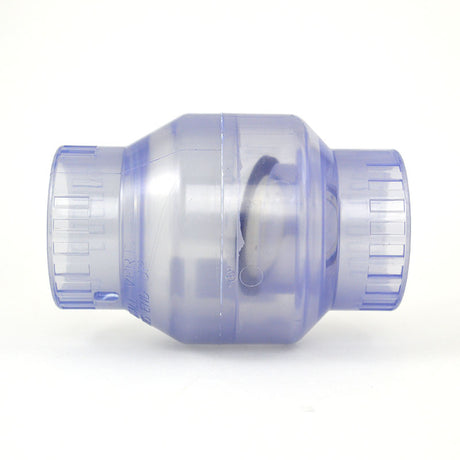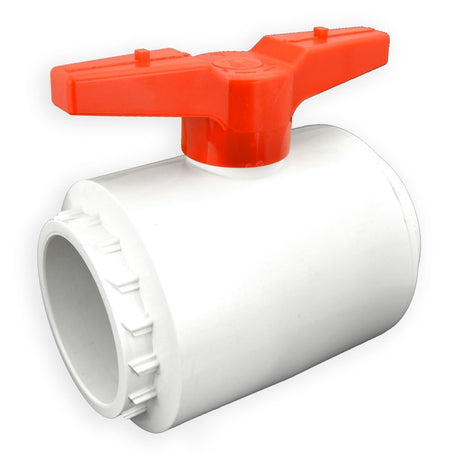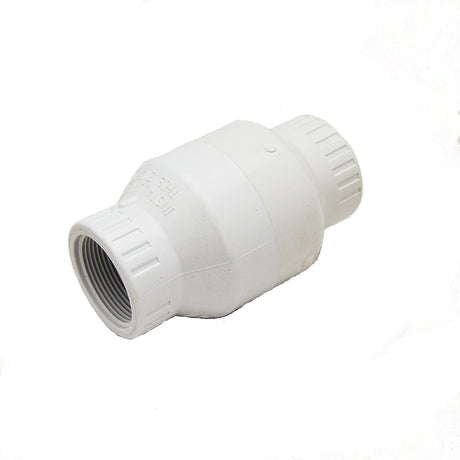-
1" Flui-PRO Series 2 PVC True Union Ball Valve - Socket & Threaded Ends
$14.64Unit price /UnavailableIn stock -
3" PVC Swing Check Valve - Socket (S1520-30)
$70.09Unit price /Unavailable -
3/4" Flui-PRO Series 2 PVC True Union Ball Valve - Socket & Threaded Ends
$9.86Unit price /UnavailableIn stock -
1" Flui-PRO PVC Compact Ball Valve - White / Socket (FP-WS-010)
$6.96Unit price /UnavailableIn stock -
1" Flui-PRO [PRO SERIES] PVC True Union Ball Valve - Socket & Threaded Ends
$24.07Unit price /UnavailableIn stock -
2" Flui-PRO Series 2 PVC True Union Ball Valve - Socket & Threaded Ends
$55.26Unit price /UnavailableIn stock -
4" PVC Swing Check Valve - Socket (S1520-40)
$105.05Unit price /Unavailable -
3/4" Flui-PRO PVC Compact Ball Valve - White / Socket (FP-WS-007)
$4.83Unit price /UnavailableIn stock -
1" PVC Socket Gate Valve Spears 2022-010
$64.38Unit price /Unavailable -
2" Flui-PRO PVC Compact Ball Valve - White / Socket (FP-WS-020)
$14.59Unit price /UnavailableIn stock -
1-1/2" Flui-PRO PVC Compact Ball Valve - White / Socket (FP-WS-015)
$10.98Unit price /UnavailableIn stock -
3/4" Flui-PRO [PRO SERIES] PVC True Union Ball Valve - Socket & Threaded Ends
$12.05Unit price /UnavailableIn stock -
1-1/2" Flui-PRO Series 2 PVC True Union Ball Valve - Socket & Threaded Ends
$24.89Unit price /UnavailableIn stock -
1" Clear PVC True Union Swing Check Valve - Socket (S1720C-10)
$33.26Unit price /Unavailable -
1" Flui-PRO PVC Compact Ball Valve - Gray / Socket (FP-GS-010)
$6.05Unit price /UnavailableIn stock -
3/4" Flui-PRO PVC Compact Ball Valve - Gray / Threaded (FP-GT-007)
$4.66Unit price /UnavailableIn stock -
2" PVC Swing Check Valve - Socket (S1520-20)
$41.39Unit price /Unavailable -
-
-
2" Flui-PRO [PRO SERIES] PVC True Union Ball Valve - Socket & Threaded Ends
$64.64Unit price /UnavailableIn stock -
-
2" Clear PVC True Union Swing Check Valve - Socket (S1720C-20)
$57.08Unit price /Unavailable -
6" PVC Swing Check Valve - Socket (S1520-60)
$205.24Unit price /Unavailable -
-
1-1/2" Flui-PRO [PRO SERIES] PVC True Union Ball Valve - Socket & Threaded Ends
$34.16Unit price /UnavailableIn stock -
1" Flui-PRO PVC Compact Ball Valve - Gray / Threaded (FP-GT-010)
$5.60Unit price /UnavailableIn stock -
-
-
3/4" Flui-PRO PVC Compact Ball Valve - Gray / Socket (FP-GS-007)
$3.59Unit price /UnavailableIn stock -
-
6" Flui-PRO PVC Compact Ball Valve - White / Socket (FP-WS-060)
$244.23Unit price /UnavailableIn stock -
-
3/4" Flui-PRO PVC Compact Ball Valve - White / Threaded (FP-WT-007)
$3.59Unit price /UnavailableIn stock -
1/2" Flui-PRO PVC Compact Ball Valve - White / Socket (FP-WS-005)
$2.95Unit price /UnavailableIn stock -
1-1/2" PVC Swing Check Valve - Socket (S1520-15)
$23.31Unit price /Unavailable -
1/2" Flui-PRO PVC Compact Ball Valve - Gray / Threaded (FP-GT-005)
$3.74Unit price /Unavailable -
-
-
1" Flui-PRO [PRO SERIES - Viton] PVC True Union Ball Valve – SOC / NPT
$34.60Unit price /UnavailableIn stock -
1-1/2" Clear PVC Swing Check Valve - Socket (S1520C-15)
$32.04Unit price /Unavailable -
Sold out
1/2" Flui-PRO Series 2 PVC True Union Ball Valve - Socket & Threaded Ends
$7.44Unit price /Unavailable -
2" Flui-PRO PVC Compact Ball Valve - Gray / Socket (FP-GS-020)
$17.15Unit price /UnavailableIn stock -
1" PVC Swing Check Valve - Socket (S1520-10)
$22.85Unit price /Unavailable -
2" PVC True Union Swing Check Valve - Socket (S1720-20)
$41.97Unit price /Unavailable -
1" Flui-PRO PVC Compact Ball Valve - White / Threaded (FP-WT-010)
$4.37Unit price /UnavailableIn stock -
1-1/2" Flui-PRO PVC Compact Ball Valve - Gray / Socket (FP-GS-015)
$10.58Unit price /UnavailableIn stock -
1/2" Flui-PRO [PRO SERIES] PVC True Union Ball Valve - Socket & Threaded Ends
$9.15Unit price /UnavailableIn stock -
2" Clear PVC Swing Check Valve - Socket (S1520C-20)
$46.14Unit price /Unavailable -
4" Flui-PRO PVC Compact Ball Valve - White / Socket (FP-WS-040)
$81.95Unit price /UnavailableIn stock -
1" PVC Swing Check Valve - Threaded (S1520-10F)
$22.85Unit price /Unavailable

